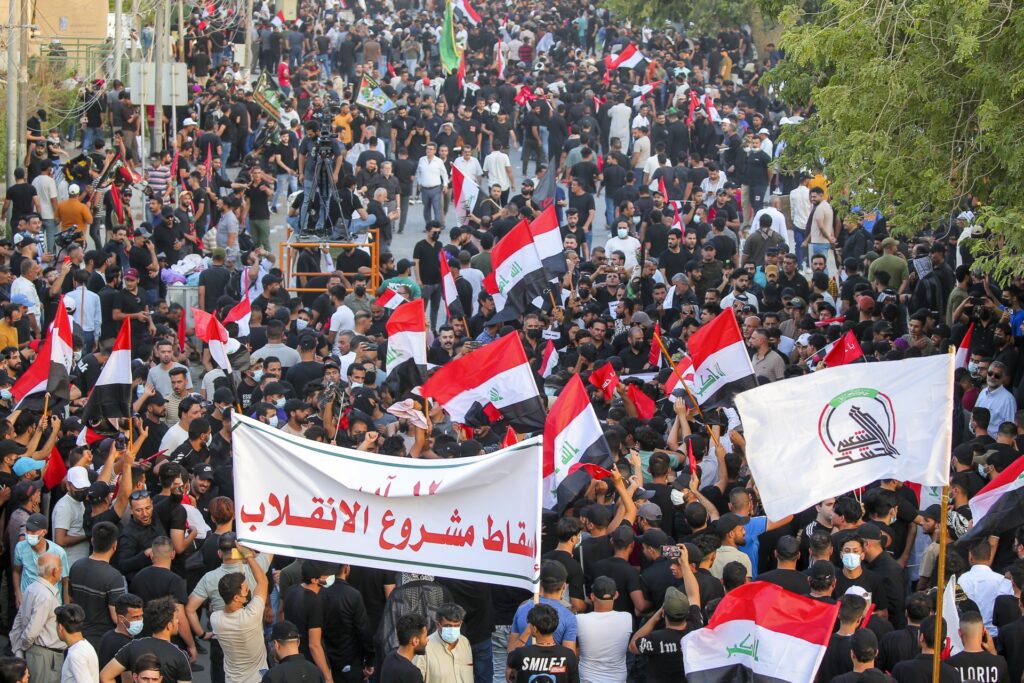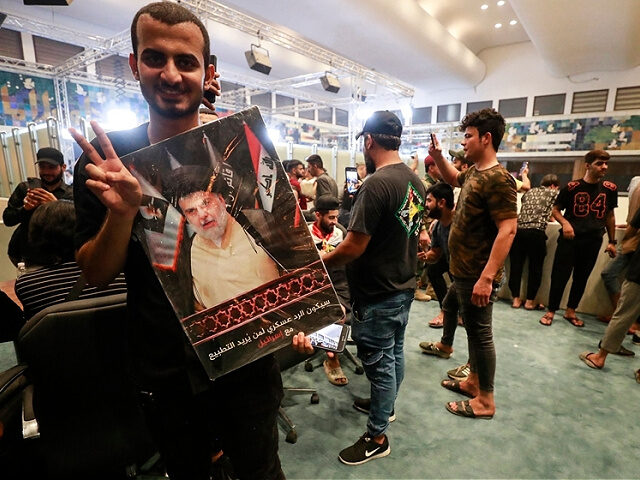Iraq’s Supreme Federal Court ruled Wednesday that it lacks the legal authority to dissolve Parliament, as demanded by Shiite nationalist cleric Moqtada al-Sadr. The much-anticipated ruling sets the stage for a showdown between Sadr’s followers and other factions, as Iraq approaches one full year without a functional government.
Sadr formed his own political party last year and won 73 seats in October’s elections but ordered all of his lawmakers to resign in June because he was frustrated with the paralysis of Baghdad politics. Sadr himself was one reason a government could not be formed, as he vetoed several candidates for prime minister and flooded the streets with his followers to ensure his demands were met.
Hundreds of Sadr’s followers occupied the secure “Green Zone” in Baghdad over the summer, erupting into violence in late August after Sadr announced his “final withdrawal” from politics. His ultimate demand was for the Iraqi Supreme Court to dissolve parliament so a completely new government and legislature could be formed, including no one who has held office since the United States invaded and overthrew dictator Saddam Hussein.

Supporters of Iran-backed Shiite Coordination Framework attend a rally to denounce their rivals, followers of an influential Shiite cleric Muqtada al-Sadr who stormed the parliament last month and have since been holding a sit-in outside the assembly building in Baghdad, Iraq, Friday, Aug. 12, 2022. (AP Photo/Anmar Khalil)
Sadr is the most popular nationalist leader among Iraqi Shiite Muslims, but there are other Shiite factions loyal to Iran, and they clashed with the Sadrists during the Green Zone riots. Iraqi security forces were deployed after the Supreme Court rejected lawsuits from Sadrist lawmakers seeking the dissolution of Parliament.
Middle East Eye on Wednesday found Baghdad residents holding their breath and waiting for Sadr’s next move. Some thought Sadr might back down because he is locked in a struggle for authority with other Shiite clerics — a struggle he might be losing since his supporters were not able to seize control of the Green Zone after his ostentatious withdrawal from politics.
Al Jazeera on Wednesday noted that last week’s protests looked like “the beginning of a civil war at first,” but quickly fizzled, possibly because other Shiite factions and Iran loyalists demonstrated they had enough firepower on the streets to defeat the Sadrists.
The Associated Press noted that Iraqi legislators have floated the idea of dissolving Parliament themselves and holding early elections, but Sadr has rejected that solution on the grounds that it would not clean all of the existing officeholders out of the government.

COMMENTS
Please let us know if you're having issues with commenting.